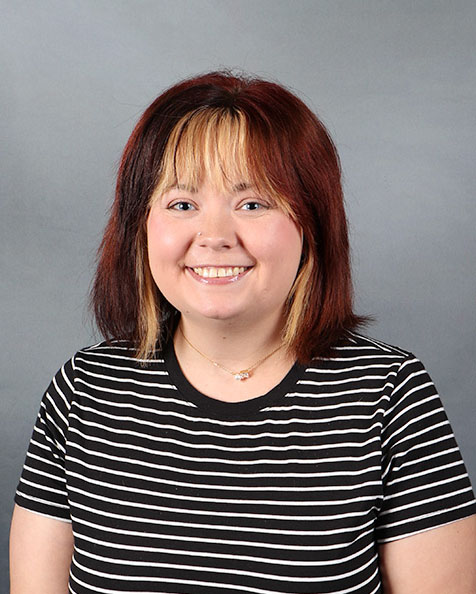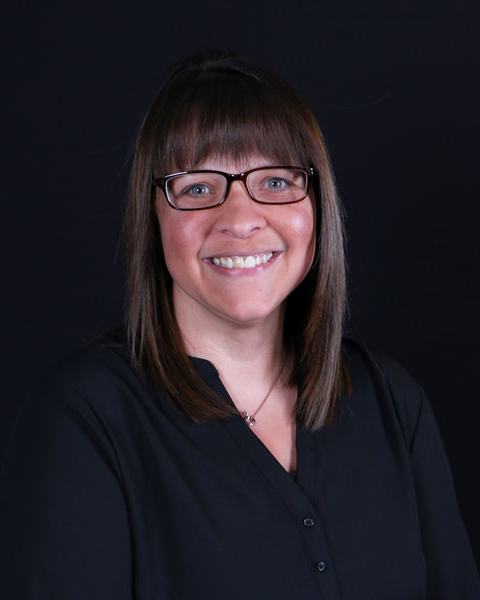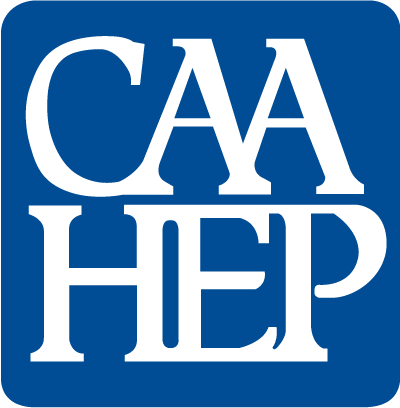LCC's Sonography Program offers a distance learning format, enhancing student opportunities, and flexibility while providing you with the education and knowledge you need to enter the field of sonography as a confident and highly trained professional.
Request DMS Program InfoThe program provides two options: General (Abdomen-Extended and OB/GYN), or Vascular. Each track lasts 14 months and includes online didactic coursework, in addition to clinical rotations at a location near you, all designed to prepare students for the ARDMS board examinations.
The Diagnostic Medical Sonography Program at LCC stands out as one of only four distance learning programs in the U.S. with accreditation from the Commission on Accreditation of Allied Health Education Programs (CAAHEP). This accreditation comes after a recommendation from the Joint Review Committee on Education in Diagnostic Medical Sonography (JRC-DMS), and the program has been approved since March 2013.
By choosing ultrasound as a career, know that you have chosen an ever-changing career in a field with continuously advancing technology.
According to the Bureau of Labor and Statistics, the 2024 median pay for diagnostic medical sonographers was $82,570. Employment is projected to grow 11% from 2023–2033 which is much faster than average for all occupations.
The necessity for training new sonographers is due to a variety of things including, the aging population and growing rates of chronic conditions. Another reason for the rise is there are more opportunities for sonographers now emerging in physician offices and clinics. This need is outpacing the supply of qualified sonographers resulting in shortages and recruitment challenges.
Academic Curriculum Map
Acceptance into the Sonography Program is a competitive process & based on several required components. If you have any questions regarding the application process, please contact the DMS Navigator at dmsprogram@student.labette.edu.
DMS AAS DMS General Sonography DMS Vascular Sonography Course DescriptionsApplication Information
Applications Open: October 1, 2025
Application Deadline: March 5, 2026
Text 620-206-5968 for information
Timeline & ProcessEligibility Requirements
Upload Documents
Contact Information

Morgan Augustine
DMS Program SpecialistEmail (best option):
dmsprogram@student.labette.edu
Text: 620-206-5968
Phone: 620-820-1241
Frequently Asked Questions
Sonography, also known as ultrasound, is a diagnostic imaging technique that uses high-frequency sound waves to create images of organs, tissues, and other structures inside the body. These images help healthcare providers diagnose and monitor various medical conditions.
Diagnostic Medical Sonographers typically work in hospitals, outpatient imaging centers, and doctors' offices.
According to the U.S. Bureau of Labor Statistics, the median annual salary for sonographers in 2024 was $82,570.
Yes, our program is accredited by the Commission on Accreditation of Allied Health Education Programs (CAAHEP), based on the recommendation of the Joint Review Committee on Education in Diagnostic Medical Sonography (JRC-DMS). The program has been accredited since March 2013. For more details, visit www.CAAHEP.org
Graduating from an accredited program ensures you've received a quality education that meets national standards. Many employers prefer or require graduates from accredited programs, making you more competitive in the job market.
The DMS program lasts 14 months and begins each year in June.
The application for the 2026–2027 program opens on October 1, 2025. The deadline to apply is March 5, 2026.
We accept up to 25 students each year.
We offer two concentrations:
- General Sonography (abdomen-extended and OB/GYN)
- Vascular Sonography (vascular anatomy and physiology)
No, but you can complete them consecutively. If you return for the second concentration, you won’t need to retake the virtual lab, Introduction to Sonography, or Physics courses.
Yes, the lecture (didactic) portion is online. Clinical rotations are completed at an approved site near your location.
To be eligible to apply, you must have an Associate’s or Bachelor’s degree from a regionally accredited institution (any major) with a minimum cumulative GPA of 2.5. Required prerequisite courses include College Algebra, English Composition or Public Speaking, Anatomy & Physiology (completed within the last five years), Medical Terminology, and Physics—all with a grade of “C” or better. If you have completed a Radiography program, you will not need to retake Physics or Medical Terminology.
Applicants must also have hands-on patient care experience through one of two options: completing a health science program such as Radiography, Respiratory Therapy, or Nursing; or completing at least 300 hours of direct patient care in roles such as CNA, EKG Tech, Phlebotomist, or PCT. This experience must include tasks like taking and recording vital signs, assisting with exams and treatments, helping physicians, turning or moving patients, bathing and grooming, and transporting patients.
To earn the Sonography Associate of Applied Science (AAS) degree, students must complete a minimum number of credit hours. When transferring courses from other institutions, some credits may transfer with fewer hours than required at LCC. For example, if you completed a 2-credit medical terminology course elsewhere that meets the CAAHEP prerequisite but doesn’t meet LCC’s 3-credit requirement, you may be placed on the Certificate track if accepted.
What does this mean for you? The program curriculum and training remain the same whether you are on the AAS or Certificate track. You will still be eligible to take the ARDMS board exams upon completion. This policy ensures fairness and equal opportunity for applicants coming from schools with different credit hour systems.
During the fall and spring semesters, students complete 24 hours per week. In the last summer semester, this increases to 32 hours per week. For scheduling, students will attend their clinical rotation at the most convenient times, which may vary based on the site's scheduling preferences. Typically, this will align with regular business hours to coordinate with the schedules of staff and patients.
As part of the application process, you are required to complete an 8-hour observation day at a potential clinical site. After the observation, if the site is interested in hosting you for clinicals, Labette Community College (LCC) will reach out to begin the affiliation agreement process. If the site declines, you will need to complete another observation at a different location.
Please note: If you're applying under Option #2 of the medical component (based on direct patient care experience), the clinical site must also sign a form confirming they are willing to accept you as a student without having completed a formal health science program, such as Radiography, Respiratory Therapy, or Nursing.
No, clinical rotations are completed at an approved site near your home.
The total cost ranges from $14,000 to $20,000, depending on your residency status (in-state vs. out-of-state tuition) and concentration.
Yes, financial aid and scholarships may help cover the cost of the program, depending on your eligibility. For more info, visit our Financial Aid & Scholarships page.
Program Eligibility
2026-2027 Sonography Program Eligibility Requirements
To be eligible for the Diagnostic Medical Sonography Program, applicants must meet the following criteria:
- Education Requirement
- Applicants must have earned an Associate's or Bachelor’s degree from a regionally accredited institution. (No specific area of study required.)
- If the degree was obtained internationally, the applicant must provide an official credential evaluation verifying equivalency to a U.S. degree.
- Prerequisite Coursework
- College Algebra - 3 credits
- Public Speaking or English Composition I – 3 credits
- Anatomy & Physiology – 5 credits
- Must have been completed within the last five years (Fall 2020 or later)
- At some institutions, Anatomy & Physiology may be offered as two separate courses (A&P I and A&P II) or as a single combined course. Either format is acceptable as long as it meets the total credit hour requirement and covers equivalent content to Labette Community College's Anatomy & Physiology course.
- Medical Terminology – 3 credits
- Physics – 4 credits
- Cumulative GPA must be 2.5 or higher
- Medical Component Requirement
- Radiography
- Respiratory Therapy
- Nursing
- Other approved, accredited health science programs
- Certified Nursing Assistant (CNA)
- EKG Technician
- Phlebotomist
- Patient Care Technician (PCT)
- Other approved hands-on patient care experience
- A registered sonographer OR
- A director of imaging at the approved clinical site
- Assessing patients
- Taking and recording vital signs
- Assisting with exams and treatments
- Assisting physicians
- Turning or moving patients
- Bathing and grooming patients
- Transporting patients
Applicants must successfully complete the following courses with a minimum grade of “C” at a regionally accredited institution:
Applicants must have hands-on patient care experience, which can be met through one of the following ways:
Option 1: Completion of a Health Science Program
Examples include:
Option 2: Direct Patient Care Experience & Clinical Site Approval
Applicants without a health science program degree must have hands-on patient care experience for a minimum of 300 hours in one of the following roles:
Required Clinical Site Exception
Applicants without a health science program degree must obtain written approval during their observation time from a qualified individual willing to sign an Exception Form. This form acknowledges that the applicant does not meet the standard admissions criteria but is still considered a strong candidate for clinical placement. This form must be signed by one of the following:
Hands-On Patient Care Experience Must Include (but is not limited to):
DMS Application Timeline
| Date | Action |
|---|---|
| October 1, 2025 | Entrance Exam Opens – Must be passed before receiving access to the application. |
| March 5, 2026, by 3:00 PM CT | Application Deadline – Submit all application materials, including the Clinical Affiliate Agreement must by this date. |
| March 23, 2026 | Application Review Begins |
| 1st week of April 2026 | Interview Stage – Selected applicants will be contacted for interviews |
| 2nd week of April 2026 | Admissions Decision Released |
| June 1, 2026 | Program Starts |
Request for Information
Submit your RequestComplete the Entrance Exam (Available October 1, 2025)
The exam is proctored online — you will receive an email with payment instructions and exam details after you have submitted your request for program information.
Complete the DMS Application
- Once you have successfully passed the entrance exam, you will receive the link for the application.
- Ensure all prerequisite coursework is completed or in progress for Spring 2026.
Application Process and Tips
- Securing a clinical site is often the most challenging and time-consuming part of the application process. It can take weeks—or even months—to finalize placement, especially in areas with limited availability. This must be completed by March 5, 2026, by 3:00 PM CT.
- We currently have clinical site agreements in the following states:
AZ, AR, CA, DC, FL, HI, IN, KS, KY, ME, MI, MN, MO, MS, NC, NE, NM, OK, TN, TX, VA, WA - If you reside in or near one of these states, you may have a smoother path to securing a site. However, placement is not guaranteed, and sites are limited, so early preparation is key.
- Clinical sites that are no longer accepting students for the
2026-2027 program year:
Labette Health in Parsons, KS
DMS STAFF

Brian Vediz
BSCTE, RDMS (AB, OB/GYN), RDCS, RVT, Director of the Diagnostic Medical Sonography Program

Jessica Garretson
RDMS (AB, OB/GYN), RVT, Clinical Coordinator/Instructor

Brandi Clark
BSCTE, RRT, Engagement Coordinator

Morgan Augustine
DMS Program Specialist



